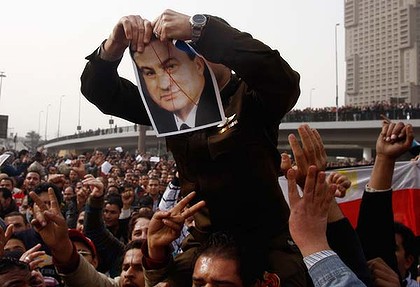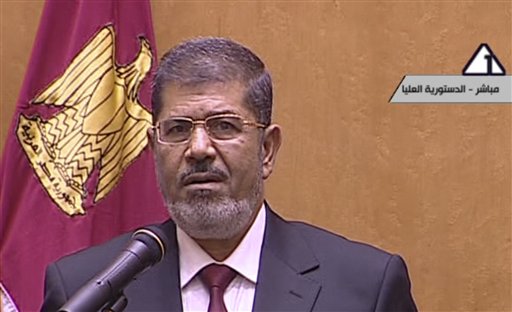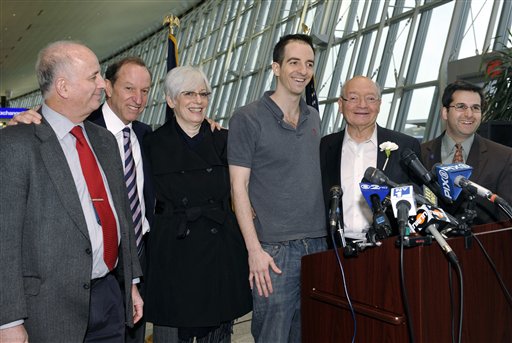
 We do big things. In his second State of the Union address, President Barack Obama uttered this refrain as a way to galvanize his base of supporters while reminding his detractors that he is indeed a patriot who believes in the spirit of the American union, one of the most charmed and enduring regimes in history. A union forged through both revolution and compromise, and founded upon a Constitution so broad and forward-thinking that equal room was deliberately given to both actions.
We do big things. In his second State of the Union address, President Barack Obama uttered this refrain as a way to galvanize his base of supporters while reminding his detractors that he is indeed a patriot who believes in the spirit of the American union, one of the most charmed and enduring regimes in history. A union forged through both revolution and compromise, and founded upon a Constitution so broad and forward-thinking that equal room was deliberately given to both actions.
It was a speech delivered when the nation was smarting from a dastardly blow to the conscience of its people delivered by a diseased individual in Tucson who made us all question the vituperative nature of our national discourse. His delivery of the speech was outstanding and the content was politically cunning because the president was able to co-opt the primary arguments of his opposition and position their responses as immature, negative and shallow.
But in an era of instantaneous information and reactionary politics, political victory is fleeting. At the time of this particular address the seeds of revolution had already blossomed abroad as a Tunisian fruit vendor entered martyrdom and sparked demonstrations that continue unabated throughout the Arab world. Now, just weeks after we begin to heal from the tragedy in Tucson, we have turned our attention to the battle for democracy in Egypt and wonder what, if anything, our role is there.
This column is the culmination of an unintended three-part series examining America through the lens of the State of the Union and the unfolding drama in Cairo. I find my mind continually examining the dichotomy between our speech and our actions, and measuring the perception we have of ourselves against that of the world. The relative silence of the Republican Party on Egypt and the caution of the Obama administration illustrate how painful our predicament truly is.
The longevity of the Hosni Mubarak regime is directly attributable to our financial and diplomatic efforts to assist a strategic ally who we deemed critical to maintaining a balance of power in the Middle East. The reality is inescapable.
Inherent in our tacit approval of Mubarak’s repressive presidency has been the endorsement of his most undemocratic policies and tactics, which are fueling the revolution against him. Our stance has always been that the heavy hand of dictatorship is more palatable than having yet another overt enemy to Israel, particularly one with strategic trade benefits given its proximity to the Suez Canal. More recently these tactics have proved useful in America’s war on terror as intelligence has flowed freely between our two nations.
But our hypocrisy has its boundaries. The demonstrations of freedom and the faces of young people rising up against tyranny inspire Americans at our core in a way other nations simply wouldn’t understand. For all the criticism we receive for being ignorant, ethnocentric and entitled, we have nevertheless been instilled with a sense of patriotism that is easily awakened. Beneath our sense of entitlement is a vague memory and inchoate understanding of the revolutionary underpinnings this nation was founded upon.
I spend a great deal of time and ink railing against government impropriety or wrongdoing; but I do so with the deep appreciation and understanding that it is my right to do so because my government grants me this freedom. Here again President Obama perfectly balanced this notion when he pointed out that despite the differences among those he addressed in the chamber that January night, not one of them would trade places with any other nation in the world.
But to continue with that thought and the belief that we do big things, we must also recognize that we do bad things.
Supporting the Mubarak regime all of these years without imposing our substantial will to engender a more democratic state was wrong, thereby making any attempt to influence the outcome of the revolution impossible. I truly believe that Americans have a genuine sense of familiarity and envy when witnessing what is happening in Egypt. In every fist raised defiantly in Tahrir Square we see our own. This is righteousness in the raw. With each passing day of protest we are at once reacquainted with the emotions our forebears must have felt when they fought the forces of tyranny and painfully made aware of the realization that, in the case of Egypt, we have aided the oppressor.
But if we forgive ourselves the transgression of upholding tyranny and see this moment through the uniquely American lens of democracy as we understand it, there is great satisfaction and comfort to be had. It is a timeless scene beautifully scripted by Henry David Thoreau in Civil Disobedience, a resource I refer to often when attempting to divine inspiration and clarity on the conundrum that is freedom through governance: “All men recognize the right of revolution; that is, the right to refuse allegiance to and to resist the government, when its tyranny or its inefficiency are great and unendurable.”
If you wish to comment on “Off the Reservation,” send your message to [email protected]






